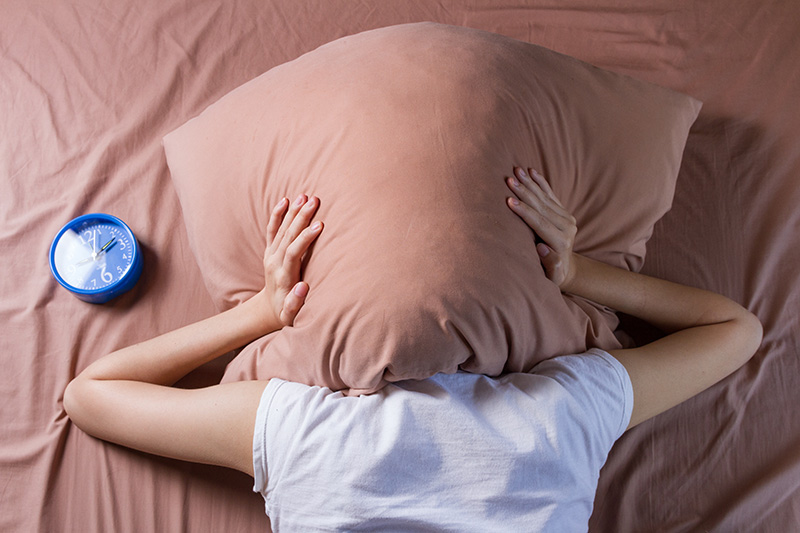How does anxiety arise?
The development of anxiety can be influenced by external pressures and personal vulnerabilities. External stress generally refers to the various difficulties and challenges that an individual faces in interacting with the environment. These situations may be tiring and beyond the individual's ability to bear. Individual vulnerability and differences in feelings about stressors are related to genetics and learning experience. However, external pressure does not necessarily cause anxiety in an individual. If a person's stress tolerance is low, even a small amount of pressure can cause great anxiety in the individual.
Brief introduction to anxiety disorder
The main symptoms of the anxiety disorder are excessive anxiety, worry, fear and avoidance, which can cause great pain and damage social and occupational functions. It can be further divided into the following illnesses:
- Separation anxiety disorder: An individual experiences excessive fear or anxiety regarding separation from people to whom the individual has a strong emotional attachment.
- Specific phobia: A marked fear or anxiety about exposure to specific objects or situations.
- Social anxiety disorder (social phobia): Palpable fear or anxiety at being exposed to a social situation that could be scrutinized by others.
- Panic disorder: Recurrent and unexpected panic attacks. A panic attack is a sudden surge of intense fear or discomfort that peaks within minutes and can even cause feelings of impending death.
- Agoraphobia: Excessive fear or anxiety about specific objects or situations. This fear may lead to avoidance of associated places or objects and may interfere with an individual's daily life.
- Generalized Anxiety Disorder: It is a mental illness characterized by long-term, excessive anxiety and worry. It is different from normal day-to-day worries and cannot be easily controlled.

Symptoms of anxiety disorders
- Physiological reactions: body fever, palpitations, chest tightness, hyperventilation, gastrointestinal discomfort, dizziness, dry mouth, muscle tension, pain, fatigue, inability to concentrate, thinking disorder, etc.
- Cognitive responses: I can't do it, I feel stupid, people often pay attention to me, I feel I’m going to pass out, I have a heart attack, I can't breathe, I don't want to go out, I'm going crazy, etc.
- Emotional reactions: fear, excitement, panic, excessive worry, insecurity, feelings of world destruction, sadness, loss of control, guilt, anger, depression, etc.
The impact of illness on school, family and work
- Academic studies are a kind of pressure for individuals, which will cause anxiety, and in turn, anxiety will have a negative impact on academic performance. People with anxiety disorders can have trouble concentrating, can't sit still and concentrate on their books, and their memory can be affected. Many patients suffer from insomnia, resulting in tiredness and dizziness during the day, and thus the studying results will certainly be reduced significantly.
- For anxiety patients, some family problems (e.g. financial problems, children's education) are likely to bring them great psychological pressure, emotional anxiety, tension, excessive anxiety, accompanied by some physical symptoms. At the early stages of the patient's illness, their family members will be very concerned and patient enough to accompany them around for treatment. After a certain period of time, failure to identify the causative factors may lead to the impatience of family members, who may start to alienate and ignore them. At this point, the family atmosphere will fall into a low ebb, and a balance in the family will be disrupted, from which new pressure will arise.
- Work itself is a kind of pressure, the boss's requirements, performance needs, self-expectations are all the pressure sources at work, all of which are enough to cause anxiety. Anxiety patients, in severe cases, are often unable to concentrate on their work because they feel that their whole body is not right or painful, ranging from headache, dizziness, weakness to numbness of the limbs. However, they are often not allowed to abandon their work at will. As a result, not only does work stress aggravates anxiety symptoms, but the illness itself in turn creates a new kind of stress.
Treatment of anxiety disorders
The principle of treatment is based on the patient's main problems. The physician, after making a detailed diagnosis, decides to treat the disorder in a way that is appropriate for the patient. The main treatment methods are as follows:
- Pharmacotherapy:
Based on anxiolytics and antidepressants, the patient must follow their doctor's instructions and never adjust the dosage or stop taking it without permission. With the development of medical technology, the side effects of the new generation of drugs have been gradually reduced, despite some in some patients. It is important to note that most side effects are temporary. Do not discontinue or reduce medication because of the discomfort caused by temporary side effects, as this may not achieve the therapeutic effect. If the side effects cause you considerable pain, discuss with your physician and make appropriate adjustments.
- Psychotherapy:
Reduce the confusion caused by anxiety and express the fear of certain things.
- Group therapy:
Get support and advice to improve psychological distress and restore life motivation.
- Behavioral therapy:
Treat anxiety through simple, actionable techniques.
- Muscle relaxation training:
Improve anxiety and hyperventilation.
Help yourself
Receive appropriate diagnosis and treatment and discuss plans for anxiety disorders with medical staff.
- Maintain a positive attitude and learn from the experiences of others.
- Take part in activities that make you feel comfortable, relax your pace of life, talk to relatives and friends, and adjust your mood.
- Participate in relevant supportive groups and garner assistance.
- Understand the treatment of anxiety disorders and other ways of rehabilitation.
- Maintain a regular schedule and take part in leisure activities.

